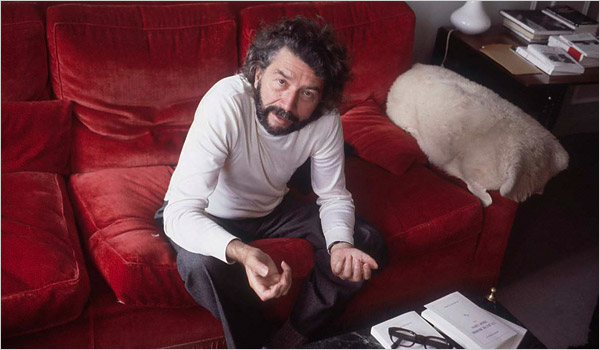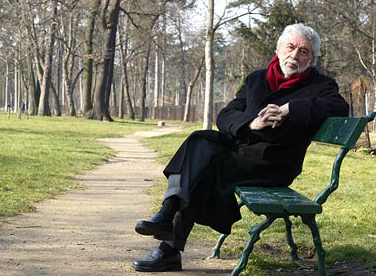<Back to Index>
- Jurist and 19th Attorney General Nathan Clifford, 1803
- Writer Alain Robbe - Grillet, 1922
- Prime Minister of France Edgar Faure, 1908
PAGE SPONSOR
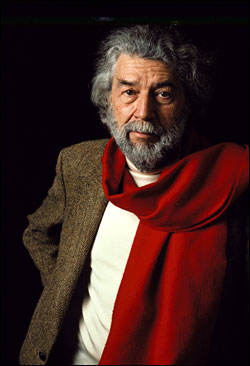
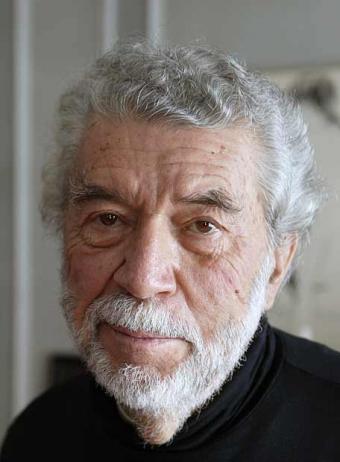
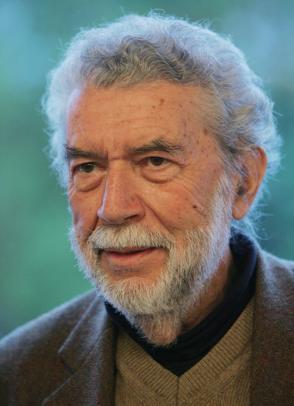
Alain Robbe - Grillet (18 August 1922 – 18 February 2008), was a French writer and filmmaker. He was, along with Nathalie Sarraute, Michel Butor and Claude Simon, one of the figures most associated with the Nouveau Roman (new novel) trend. Alain Robbe - Grillet was elected a member of the Académie française on March 25, 2004, succeeding Maurice Rheims at seat No. 32. He was married to Catherine Robbe - Grillet (née Rstakian).
Alain Robbe - Grillet was born in Brest (Finistère, France) to a family of engineers and scientists. He was trained as an agricultural engineer. During the years 1943 and 1944, Robbe - Grillet participated in compulsory labor in Nuremberg, where he worked as a machinist. The initial few months were seen by Robbe - Grillet as something of a holiday, since, in-between the very rudimentary training he was given to operate the machinery, he had free time to go to the theatre and the opera. In 1945, Robbe - Grillet completed his diploma at the National Institute of Agronomy. Later, his work as an agronomist took him to Martinique, French Guinea, Guadeloupe, and Morocco. He died in Caen after succumbing to heart problems.
Robbe-Grillet's first novel, The Erasers (Les Gommes), was published in 1953, after which he dedicated himself full time to his new occupation. His early work was praised by eminent critics, such as Roland Barthes and Maurice Blanchot. Around the time of his second novel, he became a literary advisor for Les Editions de Minuit and occupied this position from 1955 until 1985. After publishing four novels, in 1961, he worked with Alain Resnais, writing the script for Last Year in Marienbad (L'Année dernière à Marienbad), and he subsequently wrote and directed his own films.
In 1963, Robbe - Grillet published For a New Novel (Pour un Nouveau Roman), a collection of previously published theoretical writings concerning the novel. From 1966 to 1968, he was a member of the High Committee for the Defense and Expansion of French (Haut comité pour la défense et l´expansion de la langue française). In addition, Robbe - Grillet also led the Centre for Sociology of Literature (Centre de sociologie de la littérature) at the Université Libre de Bruxelles from 1980 to 1988. From 1971 to 1995, Robbe - Grillet was a professor at New York University, lecturing on his own novels.
Although Robbe - Grillet was elected to the Académie française in 2004, in his eighties, he never was formally received by the Académie because of disputes regarding the Académie's reception procedures. Robbe - Grillet both refused to prepare and submit a welcome speech in advance, preferring to improvise his speech, as well as refusing to purchase and wear the Académie's famous green tails (habit vert) and sabre, which he considered outdated.
His writing style has been described as "realist" or "phenomenological" (in the Heideggerian sense)
or "a theory of pure surface." Methodical, geometric, and often
repetitive descriptions of objects replace (though often reveal) the
psychology and interiority of the character. The reader must slowly
piece together the story and the emotional experience of jealousy, for
example, in the repetition of descriptions, the attention to odd
details, and the breaks in repetitions, a method that resembles the
experience of psychoanalysis in
which the deeper unconscious meanings are contained in the flow and
disruptions of free associations. Timelines and plots are fractured, and
the resulting novel resembles the literary equivalent of a cubist painting. Yet his work is ultimately characterized by its ability to mean many things to many different people. Robbe - Grillet wrote his first novel A Regicide (Un Régicide)
in 1949, but it was rejected by Gallimard, a major French publishing
house, and only later published with minor corrections by his lifelong
publisher Les Editions de Minuit in 1978. His first published novel was The Erasers (Les Gommes),
in 1953. The novel superficially resembles a detective novel, but it
contains within it a deeper structure based on the tale of Oedipus.
The detective is seeking the assassin in a murder that has not yet
occurred, only to discover that it is his destiny to become that
assassin. His next and most acclaimed novel is The Voyeur (Le Voyeur), first published in French in 1955 and translated into English in 1958 by Richard Howard. The Voyeur relates
the story of Mathias, a traveling watch salesman who returns to the
island of his youth with a desperate objective. As with many of his
novels, The Voyeur revolves
around an apparent murder: throughout the novel, Mathias unfolds a
newspaper clipping about the details of a young girl's murder and the
discovery of her body among the seaside rocks. Mathias' relationship
with a dead girl, possibly that hinted at in the story, is obliquely
revealed in the course of the novel so that we are never actually sure
if Mathias is a killer or simply a person who fantasizes about killing.
Importantly, the "actual murder," if such a thing exists, is absent from
the text. The narration contains little dialogue, and an ambiguous
timeline of events. Indeed, the novel's opening line is indicative of
the novel's tone: "It was as if no one had heard." The Voyeur was awarded the Prix des Critiques. Next, he wrote La Jalousie in
1957, one of his only novels to be set in a non - urban location, in this
instance a banana plantation. In the first year of publication only 746
copies were sold, despite the popularity of The Voyeur. Over time, it became a great literary success and was translated into English by Richard Howard.
Robbe - Grillet himself argued that the novel was constructed along the
lines of an absent third person narrator. In Robbe - Grillet's account of
the novel the absent narrator, a jealous husband, silently observes the
interactions of his wife (referred to only as "A...") and a neighbour,
Franck. The silent narrator who never names himself (his presence is
merely inferred, e.g. by the number of place settings at the dinner
table or deck chairs on the verandah) is extremely suspicious that A...
is having an affair with Franck. Throughout the novel, the absent
narrator continually replays his observations and suspicions (that is,
created scenarios about A... and Franck) so much so that it becomes
impossible to distinguish between 'observed' moments or 'suspicious'
moments. In
1984 he published what he described as an intentionally traditional
autobiography, entitled 'Le miroir qui revient', translated into English as 'Ghosts in the Mirror' by Jo Levy (1988).
Robbe-Grillet also wrote screenplays, notably for Alain Resnais' 1961 film Last Year at Marienbad,
a critical success that is considered to be one of the finest French
films of the 1960s. It was followed by a number of films written and
directed by Robbe - Grillet himself: Trans - Europ - Express (1966), his two French - Slovak films L'homme qui ment / Muž, ktorý luže (The Man Who Lies) (1968), L'Eden et après / Eden a potom (Eden and After) (1970), Glissements progressifs du plaisir (The Slow Slidings of Pleasure) (1974), Le jeu avec le feu (Playing with Fire) (1975), La belle captive (The Beautiful Captive) (1983) and many others.
